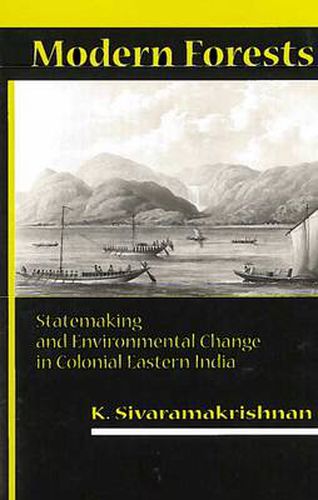Readings Newsletter
Become a Readings Member to make your shopping experience even easier.
Sign in or sign up for free!
You’re not far away from qualifying for FREE standard shipping within Australia
You’ve qualified for FREE standard shipping within Australia
The cart is loading…






An environmental, institutional, and cultural history of forestry in colonial eastern India. By examining the influence of regional political formations and biogeographic processes on land and forest management, this book offers an analysis of the social and biophysical factors that influenced landscape change. Through analysis of powerful landscape representations, the author reveals the contention, debates, and uncertainty that persisted under colonial rule as forests were identified, classified, and brought under different regimes of control and were transformed to serve a variety of imperial and local interests. The author examines the regional variations that generated widely different kinds of forest management systems, and the ways in which particular ideas and forces became dominant at various times. Through this emphasis on regional socio-political processes and ecologies, the author offers a new way to write environmental history: instead of making a sharp distinction between third-world and first-world experiences in forest management, the book suggests a potential for cross-continental comparative studies through regional analyses.
$9.00 standard shipping within Australia
FREE standard shipping within Australia for orders over $100.00
Express & International shipping calculated at checkout
An environmental, institutional, and cultural history of forestry in colonial eastern India. By examining the influence of regional political formations and biogeographic processes on land and forest management, this book offers an analysis of the social and biophysical factors that influenced landscape change. Through analysis of powerful landscape representations, the author reveals the contention, debates, and uncertainty that persisted under colonial rule as forests were identified, classified, and brought under different regimes of control and were transformed to serve a variety of imperial and local interests. The author examines the regional variations that generated widely different kinds of forest management systems, and the ways in which particular ideas and forces became dominant at various times. Through this emphasis on regional socio-political processes and ecologies, the author offers a new way to write environmental history: instead of making a sharp distinction between third-world and first-world experiences in forest management, the book suggests a potential for cross-continental comparative studies through regional analyses.